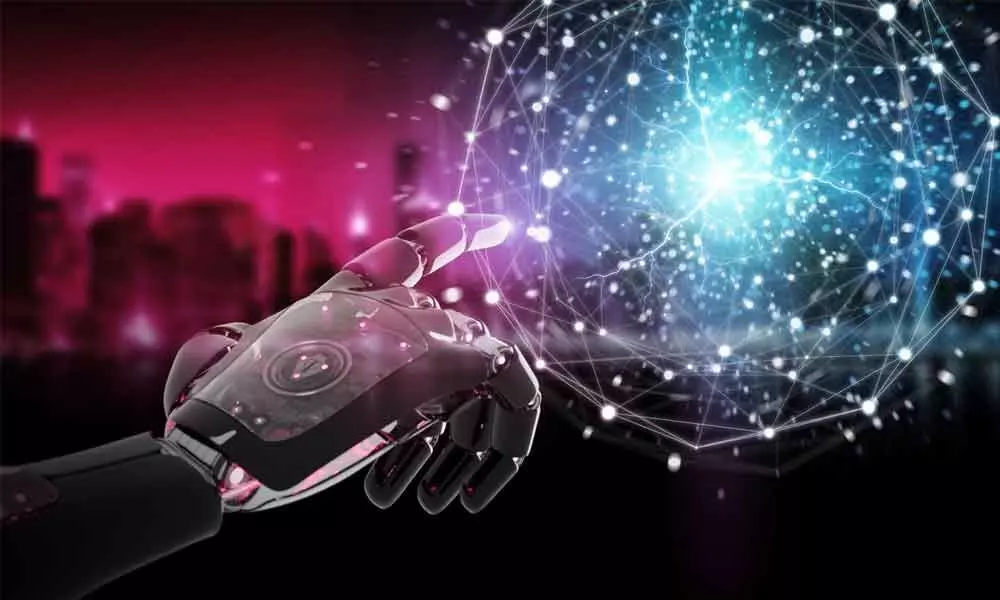Technology Singularity - will it be a reality?

It is said that the right pickup line always does the magic. When SoftBank's CEO approached the Saudi prince, his opening line was that he would like to gift the Prince a trillion US dollars.
It is said that the right pickup line always does the magic. When SoftBank's CEO approached the Saudi prince, his opening line was that he would like to gift the Prince a trillion US dollars.
The young prince, Salman, was so enchanted and captivated by Masayoshi Son's seduction, he ended up in investing $45 billion in Son's Vision Fund. That interaction apparently took Son less than 45 mins to close the deal.
One wonders what in the world would he have said that convinced the Saudi prince to make that enormous an investment. Son's pitch was simple and based on an exponent of the idea of the 'Technology Singularity'.
He was dead sure that in the coming 30 years, humanity would make Robots, that will have an IQ of 10,000. He predicts superintelligent robots will surpass humans in both number and brainpower by the year 2047.
The idea of such singularity was first introduced in 1993 by the scientist and science fiction writer Vernor Vinge. He contended that we would have tech means to create superhuman artificial intelligence.
And that would eventually lead to the end of human dominance in the world. To define that point in time, he coined the term "Singularity".
It is a point where current models would need to be discarded, and a new reality would rule. Obviously, in 1993, his vision seemed outlandish, and he had to face enough resistance to the idea.
Ray Kurzweil, the renowned futurist, is another big proponent of Singularity. In his book 'The Singularity is Near', Kurzweil believes that the magic number is the year 2045.
Just like Vinge, Kurzweil argues that we'll get to the Singularity by creating a superhuman artificial intelligence (AI). An AI of that level could conceive of ideas that no human being has thought about in the past and will invent tech tools that will be more sophisticated and advanced than anything we have today.
Danko Nikolic, a neuroscientist from Germany, specializes in understanding human intelligence. He recently stood up in front of an audience of artificial intelligence researchers and made a bold claim: we will never make a machine that is smarter than we are.
"You cannot exceed human intelligence, ever," says Nikolic. "You can asymptotically approach it, but you cannot exceed it."
He contends that many artificial intelligence researchers are overlooking that the brain is not the only thing that humans need to be smart and learn.
For him, essential tools for learning are the instructions contained in our genes, honed over billions of years of evolution.
However, as we approach the brink of an information revolution, the scope, magnitude and the complexity of the impact of machine intelligence is mindboggling. It's unlike anything humankind has experienced ever before.
The speed at which innovations and ideas are evolving on the back of artificial intelligence has no precedent in history. It has the potential to disrupt everything in the human ecosystem.
The depth and width of this evolution are impacting ideas across cyberspace, physical space and outer space. These innovations are transforming applied science, commercial R&D, politics, government, socialization, education, manufacturing, security and more.
Autonomous cars are expected to hit the roads by 2020. Google's DeepMind recently beat the world champion of a complicated computer game 'GoWorld', which is considered harder than beating a chess champ.
As some of the futurists predicted, technology seems to be accelerating faster than ever before.
Moore's Law:
Moore's Law has driven the technology industry that the speed of a computer processor would double about every 18 months.
While the process of cramming more transistors on silicon wafers is indeed slowing down and is expected to max out by 2020.
Techies are finding a variety of new ways to speed up overall performance, such as quantum computing, neuromorphic chips and 3D stacking.
Robots Are Doing Human Jobs:
Today, we're beginning to reach a tipping point concerning Robots. Rethink Robotics makes robots like Baxter and Sawyer, which can work safely around humans and can learn new tasks in minutes.
Military robots are becoming commonplace on the battlefield. Robots are also invading the creative realm. One book written by a machine was even recently accepted as a submission for the prestigious Hoshi Shinichi Literary Award in Japan.
As the power of technology continues to grow exponentially—computers will be more than a thousand times more potent in 20 years—robots will take on even more tasks.
Editing Genes:
Scientists have a new tool at their disposal, called CRISPR, which allows for editing genes at a low cost. It is already opening up avenues to render viruses inactive, regulate cell activity, create disease-resistant crops and even engineer yeast to produce ethanol that can fuel our cars.
This would allow one to alter genomes of mosquitoes so that they don't carry the Malaria virus or create babies with high intelligence and specific look.
This trend of intelligence evolution in machines has undoubtedly brought us to the brink of Singularity. Whether we believe in the concept of Singularity or not, it surely is time to have conversations about the risks and uncertainties to all of us surrounding this trend.
Thinkers like Steven Hawking and Elon Musk, have already expressed their concerns that superintelligent AI could escape our control and move against us.
While others focus on the great opportunities that such a singularity holds for us, they believe that a superintelligent AI, if kept on a tight leash, could analyze and expose many of the wonders of the world for us.
Obviously, we live in amazing times and only time will tell which way this pendulum will swing.
(The author is Chairman and CEO of Hyderabad-based Brightcom Group)










